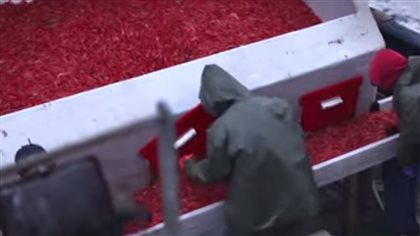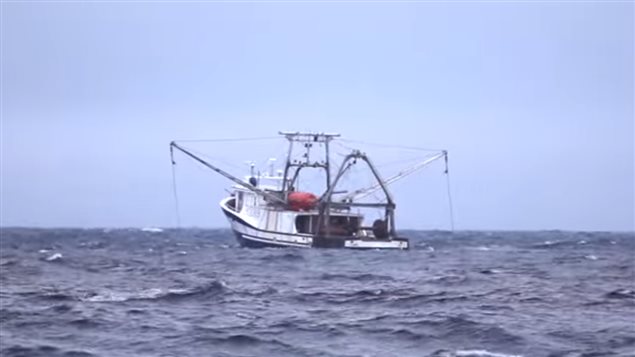A government scientific report quietly released in November paints a gloomy picture for fisheries in Newfoundland/Labrador and by extension throughout Canada’s east coast fishery.
The report says that the warming ocean is adversely affecting fish stocks, including shrimp.
In Newfoundland, one third of the value of all landed fish is due to shrimp, but warming waters have meant declining populations. Last year, cod represented about $10 million to the province, with shrimp and crab together resulting in about $590 million.

The report says, “Global rise in air temperatures have led to a general increase in regional sea surface and bottom temperatures since early to mid-1990s. In addition, extent of sea ice and the cold shelf water mass (cold intermediate layer) has been in decline since the early 1990s. The long-term trend indicates continuation of a warm regime”.
Already quotas for cold-water shrimp have been reduced. Both the North Atlantic Fisheries Organization (NAFO), and federal and provincial governments have been reducing quotas for shrimp
Since 2006 the shrimp biomass off Labrador and all around Newfoundland has dropped anywhere from 48 percent to 92 percent depending on the region, but the higher losses are in more southerly waters, which began to warm first.
Crab stocks are also down in most areas by as much as 75 percent in the most affected areas..
Cod stocks are slowly increasing but still just a fraction of historical populations.
Fishermen say as the catch decreases and quotas are reduced, it will have a major affect on the economy. Boats will be tied up meaning less fuel sales, less money spent by offshore buyers, processing plant closures and more.
The report suggests that although there are many variables, there is little prospect for any improvement in the next several years,







For reasons beyond our control, and for an undetermined period of time, our comment section is now closed. However, our social networks remain open to your contributions.